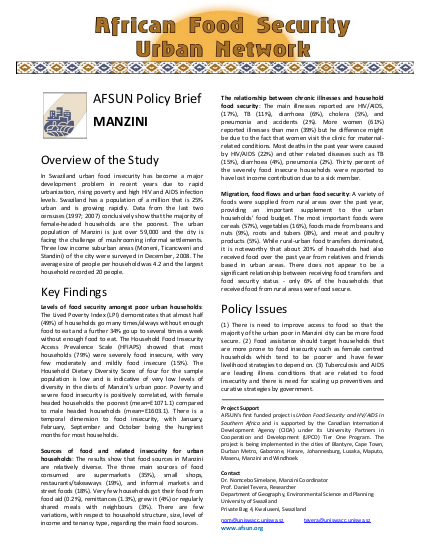
In Swaziland urban food insecurity has become a major development problem in recent years due to rapid urbanization, rising poverty and high HIV and AIDS infection levels. Swaziland has a population of a million that is 25% urban and is growing rapidly. Data from the last two censuses (1997; 2007) conclusively show that the majority of female-headed households are the poorest. The urban population of Manzini is just over 59,000 and the city is facing the challenge of mushrooming informal settlements. Three low income suburban areas (Moneni, Ticancweni and Standini) of the city were surveyed in December, 2008. The average size of people per household was 4.2 and the largest household recorded 20 people.
Links
Resource collections
- Locally led humanitarian action
- UN Habitat - Urban Response Collection
- Urban Response - Urban Crisis Preparedness and Risk Reduction
- Urban Response Collection - Community Engagement and Social Cohesion
- Urban Response Collection - Economic Recovery
- Urban Response Collection - Environment and Climate Change
- Urban Response Collection - Housing, Land and Property
- Urban Response Collection - Urban Crisis Response, Recovery and Reconstruction
- Urban Response Collection - Urban Resilience